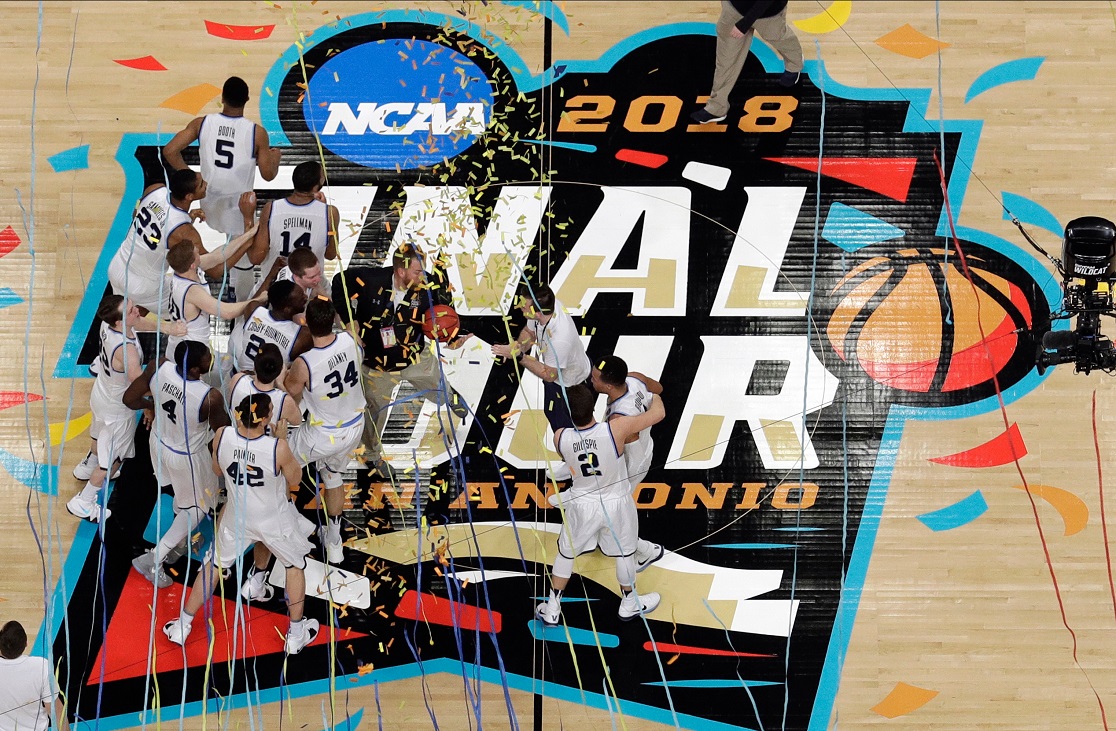
The latest move by the NCAA to give athletes a few more rights highlights shows at least one thing about the people in charge of the cartel that runs college sports.
They can move quickly when their golden goose is threatened.
That became clear this week when the NCAA adopted new rules hurriedly put forward in the wake of the ongoing scandal in college basketball. The rules were recommended in April by a commission formed when the existence of an FBI probe into pay-to-play allegations surfaced. They are designed to give elite basketball players more options, including the right to hire agents even before they commit to a school.
“These changes will promote integrity in the game, strengthen accountability and prioritize the interest of student-athletes over every other factor,” NCAA President Mark Emmert said.
It all sounds good, a tidy package of giveaways designed to solve some of the more pressing issues facing college basketball. For those lucky enough to be ranked among the best in the nation, they include the right to hire agents and to return to college if NBA dreams don’t work out.
There are also some long overdue changes in the NCAA’s investigative policies, including using outside information to help break down cases that NCAA investigators are either unwilling or unable to resolve themselves. There are longer possible suspensions, and longer postseason bans for those caught violating rules.
In all, they are mostly common sense efforts to try and fix a system that is badly broken. But they are incremental at best, and come only because of the FBI probe that threatens to further expose the dirty laundry of college basketball.
They are also a bit perplexing, especially calling on USA Basketball to assume a new role and rank high school players to decide which of them can hire agents. And they will be implemented without any agreement in sight with the NBA and its players’ union on lowering the league draft age to 18.
Ultimately, they do little to address the more serious issues facing college basketball, and college sports in general. But that was always pretty much a given since no one, it seems, wants to mess too much with a system that makes everyone money but the players.
Seriously, does anyone in the NCAA actually believe that allowing high school juniors to hire agents is some kind of fix-all for the sordid mess that is college basketball? Do they believe stiffer penalties will do away with wrongdoing when they can’t enforce the penalties they have today?
No, and no. The new rule changes are basically for show only, an attempt by Emmert and his underlings to protect their positions by appearing to do something in response to a scandal that could have far-ranging repercussions as it plays out.
Real reform is something different. Real reform means things like:
—Allowing players to sell their images and likenesses, something that should have been settled in Ed O’Bannon’s lawsuit against the NCAA but really wasn’t. This means things like allowing players to profit on sales of replica jerseys or having their name on a new pizza at a campus eatery.
—Kicking out shoe companies, or at least halting the arms war in athletic apparel. The companies and the money they funnel to schools and coaches are at the center of the FBI investigation, yet the NCAA does nothing to limit their influence in the sport.
—Making players actually go to real classes if they’re going to be labeled student-athletes. North Carolina surely wasn’t the only school that allowed athletes to attend sham classes, and one-and-done players today are gone by the time any scholastic standards need to be met.
—Giving the players a cut of the action. Coaches make $5 million a year and more, while athletic administrators get fat paychecks, too. There’s so much money in college basketball that schools have to hunt for ways to spend it, yet players get little more than books, food and a place to sleep.
There’s more, of course, because there’s plenty to change. Right now, the system is an invitation for everyone involved to cheat and try to get rich. There are few safeguards, little accountability and almost no incentive to change the way things are done.
The FBI inquiry was a wakeup call, one the NCAA answered quickly only because its very survival is at stake.
But piecemeal changes are no replacement for real reform.
____
Tim Dahlberg is a national sports columnist for The Associated Press. Write to him at tdahlberg@ap.org or http://twitter.com/timdahlberg














